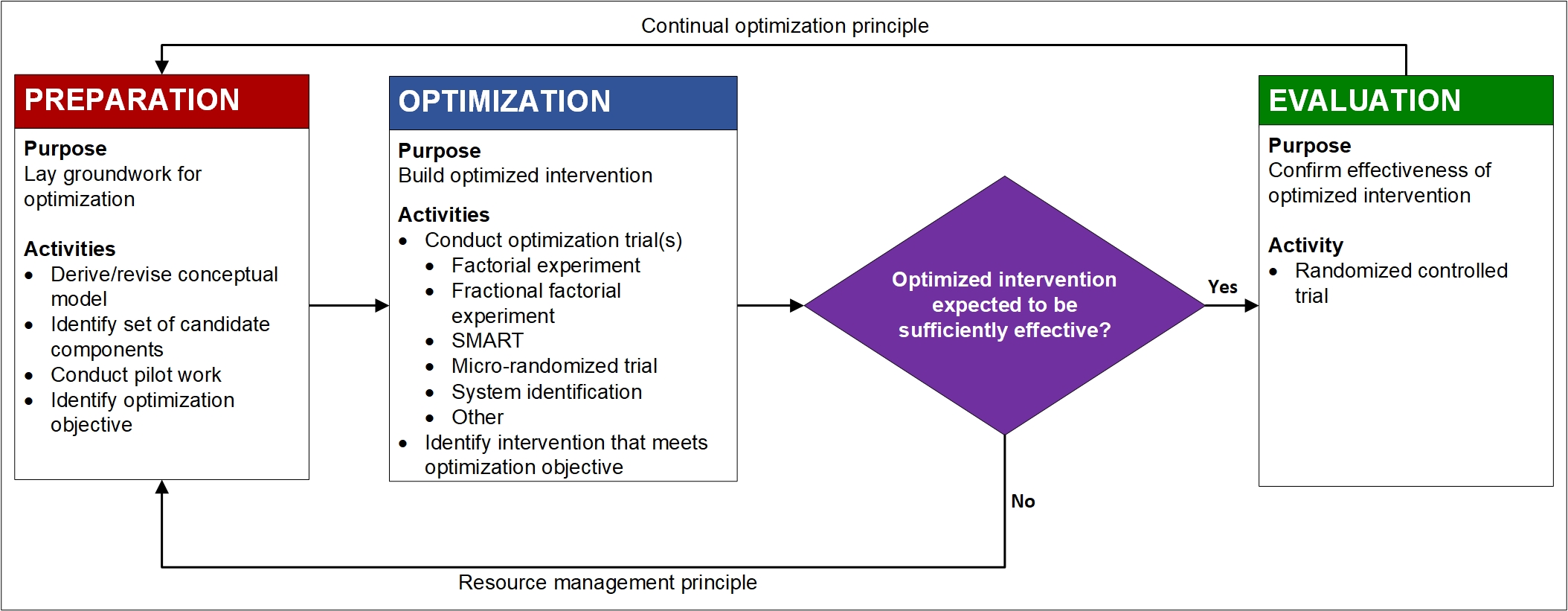Evaluation Phase
In the evaluation phase, the efficacy/effectiveness of the optimized intervention identified in the optimization phase is compared to a suitable comparator.
Commonly, the evaluation phase consists of a standard RCT comparing the optimized intervention to a suitable control or comparison condition. However, there is no requirement to use a two-arm RCT in this phase – the choice of experimental design should be informed by the research question.
As Figure 1 shows, there is another decision point immediately after the evaluation phase. If the RCT indicates that the optimized intervention is not effective, then it is necessary to return to the preparation phase and reconsider the conceptual model or the approach to intervention. If the RCT indicates that the optimized intervention is effective, implementation can begin.
Further Learning
Whether you are looking for additional support as you prepare a grant proposal involving MOST or practical information helpful in managing your optimization trial, this section provides resources for a deeper dive into intervention optimization.
LET’S STAY IN TOUCH
Join the CADIO Mailing List
Keep up to date with the latest news, events, online courses, and resources from CADIO.
